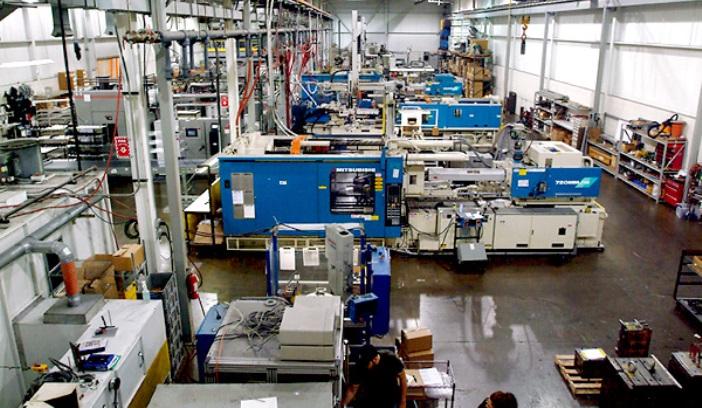How backward integration reshapes manufacturing sector
The Backward Integration Policy (BIP) was created under President Olusegun Obasanjo to boost local sourcing of raw materials, conserve foreign exchange (FX), and reduce the nation’s heavy import bill.
The policy encourages companies to source or produce a significant portion of their raw materials locally, making them more self-reliant and less exposed to foreign exchange volatility.
For many manufacturers, the policy has been a game-changer. It has expanded businesses, raised revenues, and cut dependence on imported inputs.
Lanre Osifeso, managing director of GreenHills Cassava Farmstead Nigeria Limited, said backward integration has helped his company cut down production costs, stabilise prices, and create jobs.
“Every manufacturer must produce at least 60 percent of the raw materials used at the factory to cut production costs,” Osifeso told BusinessDay. “Adopting backward integration is a win-win situation for both business owners and the communities where they operate.”
According to Osifeso, who operates in cassava processing, the policy allows him to own large farmlands that supply his processing plants directly, reducing the risk of raw material shortages and supply delays.
Across sectors, manufacturers are reporting similar benefits. Globally, backward integration is known as a competitive strategy that improves supply security, reduces input costs, and increases profitability.
In Nigeria, its popularity has grown as manufacturers seek to protect themselves against the country’s chronic FX shortages and currency depreciation.
BOP gains momentum
In the years since its introduction, several manufacturers have made significant progress under the policy.
Flour Mills of Nigeria (FMN), one of the country’s largest agro-allied conglomerates, has expanded its backward integration programme across multiple value chains, including wheat, sugar, maize, and pasta.
Through investments in over 30,000 hectares of farmland for maize, sugar and wheat cultivation, FMN has doubled its production capacity while creating employment opportunities for thousands of farmers and factory workers.
In a statement, the company said its backward integration initiatives across food-producing states are aimed at “creating value further back in the supply chain and reducing dependence on imported raw material.”
PepsiCo, a global food and beverage company, recently invested about $20 million (N29.4 billion) in a new processing partnership with Flour Mills and Presco — two major players in Nigeria’s agro-industrial space.
Under the partnership, Presco supplies vegetable oil while Flour Mills provides maize, ensuring that PepsiCo’s production lines rely primarily on Nigerian-grown inputs.
Felix Enwemadu, general manager of PepsiCo Nigeria, said that over 90 percent of the company’s raw materials across its processing chains are now sourced locally. “This partnership enhances production capacity and creates new job opportunities,” he said.
The successes of these companies show how backward integration can catalyse both industrial and agricultural growth. Not only has it boosted manufacturers’ confidence, it has also deepened investment in primary agriculture, where farmers are now positioned as key suppliers in industrial value chains.
Read also: Is Nigeria’s sugar backward integration policy working?
Small businesses also benefit
The policy impact extends beyond multinationals. Small and medium-scale entrepreneurs are also seeing gains.
Esther Williams, who works at Williams Dabo Group, a company involved in producing sack bags for industrial use, said local sourcing has made her operations smoother.
“So far, it’s been easy sourcing petroleum by-products for my business, and I buy all my raw materials here in Nigeria,” she stated. “Each time I want to buy materials, they are always available.”
Williams explained that being able to source locally protects her business from FX volatility and import delays, though she noted that this advantage varies from sector to sector.
Constraints
Despite these gains, backward integration in Nigeria still faces critical challenges.
Trade data from the National Bureau of Statistics (NBS) show that manufacturers spent N3.53 trillion on raw material imports in the first half (H1) of 2025 — a 16 percent increase from N2.95 trillion in H1 2024.
This increase highlights the structural issues that continue to constrain the policy’s full impact. High energy costs, poor transport infrastructure, and policy inconsistencies remain major barriers to full self-sufficiency.
“The process of getting raw materials has been easy,” Williams added. “But energy cost is a major challenge. I spend an average of N6 million monthly on power.”
Other players in the sector also complain about insecurity in farming communities and bad logistics systems, all of which reduce the cost advantage of local sourcing.
“There are delays sometimes from the farms, which alter production schedules because one supplies 65 percent of one’s raw materials. So there’s that challenge,” said Osifeso, noting, however, that the gains far outweigh the cons.
For instance, the success of cement production by the Dangote Group, flour by Flour Mills, and rice processing industries by Olam Agri proves that local production can thrive when infrastructure, financing, and government support align.
Industry players say that for backward integration to achieve its full potential, Africa’s most populous nation must prioritise stable policies, affordable energy and supply chain infrastructure that link factories with farms.
“If local sourcing is to be successful, there needs to be a clear end game,” said Victoria Uwadoka, head of Corporate Communications and Public Affairs and Sustainability at Nestlé Nigeria at the BusinessDay Future of Agriculture Conference in March.

